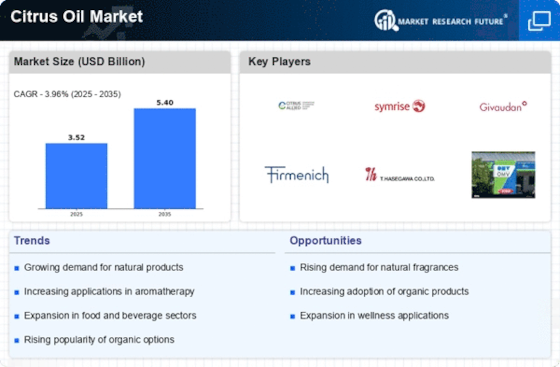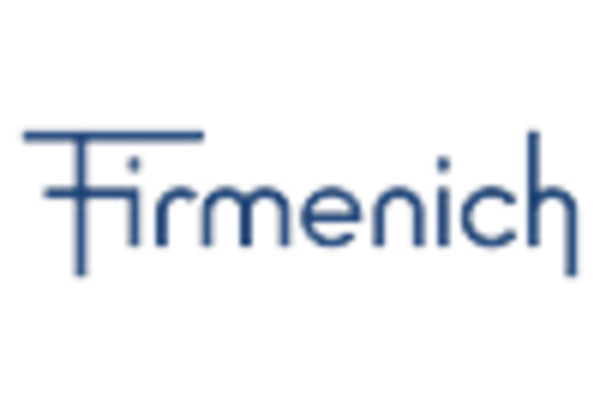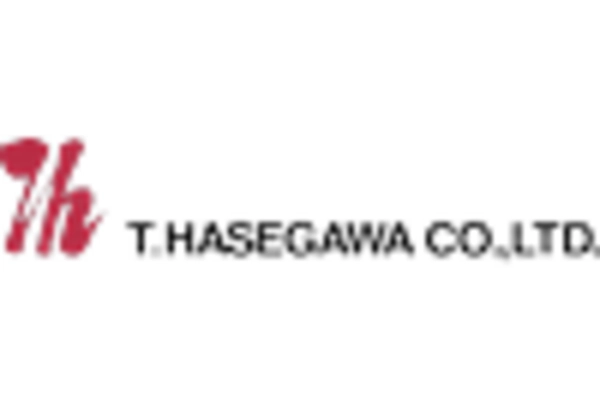Market Share
Citrus Oil Market Share Analysis
In the competitive citrus oil market, brands employ strategic market share positioning strategies to distinguish themselves, capture consumer attention, and establish a strong presence in the industry. One primary strategy revolves around product differentiation through unique flavor profiles and blends. Companies seek to offer citrus oils with distinct aromatic characteristics, exploring exotic varieties such as yuzu, bergamot, and blood orange. By providing diverse citrus options, brands can attract consumers looking for novel taste experiences, ultimately differentiating themselves in a market where flavor innovation is a key driver of consumer choice. Branding and storytelling are crucial in market share positioning within the citrus oil industry. Brands that effectively communicate their story, values, and commitment to quality create a distinct identity that resonates with consumers. Companies can establish a competitive edge and foster consumer trust by building a memorable brand image associated with authenticity, sustainability, and transparency. This branding strategy contributes to increased market share by cultivating strong connections with consumers who align with the brand's narrative and values. Customization and versatility are integral to market share positioning in the citrus oil market. Brands that offer citrus oil products suitable for various applications, such as aromatherapy, culinary uses, and skincare, cater to a diverse consumer base. By providing versatile solutions, companies can appeal to consumers seeking multipurpose products, expanding their market reach and potentially gaining a larger share of the overall citrus oil market. Sustainability initiatives are increasingly influencing market share positioning strategies. Brands prioritizing eco-friendly practices, including sustainable sourcing, ethical cultivation methods, and recyclable packaging, resonate with environmentally conscious consumers. This strategy aligns with consumer values and positions brands as responsible and socially aware choices. Companies that emphasize sustainability can leverage this positioning to attract a growing market segment that prioritizes ethical and environmentally friendly products. Collaborations and partnerships emerge as effective market share positioning tactics within the citrus oil industry. Brands that collaborate with renowned chefs, wellness influencers, or beauty experts can tap into existing audiences, leveraging the credibility and reach of their collaborators. Collaborative ventures provide opportunities for cross-promotion, introducing citrus oils to new consumer segments and solidifying the brand's position in the market through associations with trusted and influential figures. Digital marketing and e-commerce optimization reshape market share positioning strategies in the citrus oil sector. Brands that invest in a strong online presence engage with consumers through social media platforms and optimize e-commerce platforms to reach a broader audience. Online shopping allows consumers to explore a wide range of citrus oil products, driving brand visibility and potentially capturing a larger market share in the digital marketplace. Innovation in product formulations is a key strategy for market share positioning. Companies that invest in research and development to create new and unique citrus oil-based products, such as blends tailored for specific purposes or novel applications, can stand out in a saturated market. Introducing innovative products enhances brand relevance, attracts consumer interest, and positions the brand as a leader in the evolving citrus oil landscape. Geographic expansion and global market penetration are strategic approaches to increasing market share in the citrus oil industry. Brands that successfully enter new markets regionally or internationally can capitalize on diverse consumer preferences and market demands. Adapting products to suit different cultural contexts and preferences allows brands to expand their reach, driving market share growth on a global scale. Quality assurance and transparent sourcing practices are foundational elements of market share positioning in the citrus oil market. Brands prioritizing quality control adhere to industry standards and transparently communicate the sourcing and production processes to build consumer trust. Establishing a reputation for high-quality citrus oils positions a brand as a reliable choice, contributing to increased market share as consumers consistently choose products they can rely on for purity and authenticity.



















Leave a Comment